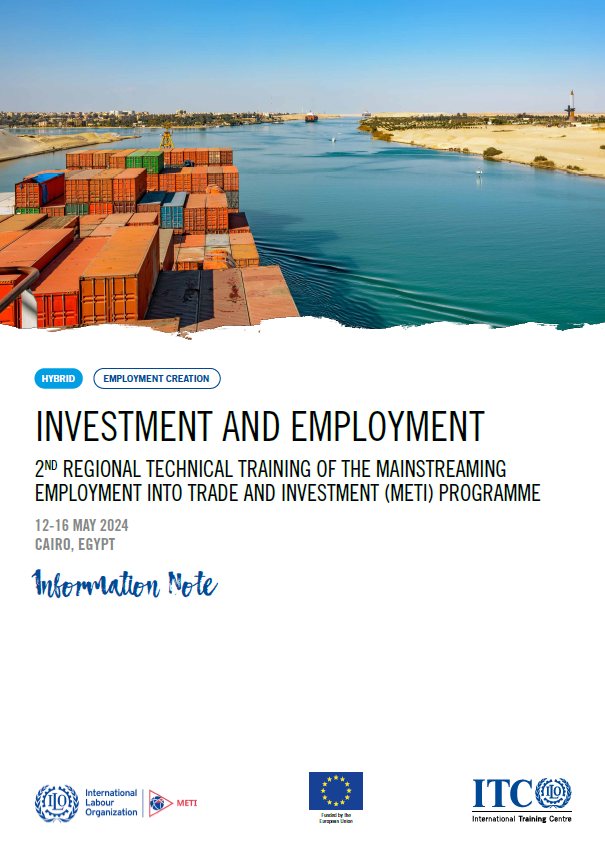Courses
October 2024
-

The Prevention of Work-related Occupational Diseases
7 - 17 October 2024
Preventing the occurrence of occupational diseases requires knowing and anticipating the health hazards to the workers that may arise from the work processes, operations and equipment in a company, in order to eliminate these hazards or plan other appropriate interventions to control risks to the health.
September 2024
-

Master in Occupational Safety and Health
9 September 2024 - 30 September 2025
OSH professionals need a multidisciplinary background to successfully operate in the broad field of OSH, therefore the programme incorporates training sessions on all of the topics and disciplines relevant to OSH. The University of Turin, Italy, in partnership with the International Training Centre of the International Labour Organization (ITCILO), is offering a Master course in Occupational Safety and Health.
-

Distance Learning Course on Occupational Safety and Health (English, Spanish)
9 September - 31 December 2024
Becoming a safety and health professional requires multidisciplinary training. The OSH profession calls for a broad-based educational background combined with specialized knowledge of physical sciences (medicine, physics, chemistry and engineering), social sciences, among others.
August 2024
-

Training of Trainers on Building Modern and Effective Labour Inspection Systems
26 August - 6 September 2024
LABADMIN/OSH (the ILO department in charge of Labour Administration, Labour Inspection and Occupational Safety and Health), has developed a training curriculum for raising the level of competence of labour inspectorates.
-

Social Security Inspection (New)
26 - 30 August 2024
The course will provide the participants with a panorama of current approaches to the social security inspection as well as the most relevant tools, resources and strategies. The course is built around the interaction between social security, occupational safety and labour inspection.
July 2024
-

E-Learning Course on Labour Inspection
1 July - 23 August 2024
The course will familiarize participants with the principles, functions and main characteristics of labour inspection. Participants will be able to choose from different compliance strategies and carry out a comprehensive and effective labour inspection visit relating to working conditions and occupational safety and health.
May 2024
-

Seguros para el desarrollo
27 May - 28 June 2024
-

ILO Code of Practice on Occupational Safety and Health in the Textiles, Clothing, Leather and Footwear Industries
20 - 24 May 2024
This course provides an overview of the new ILO Code of Practice for policy makers, senior officials and advisers from government institutions in charge of the planning, implementation and management of OSH in the textiles, clothing, leather and footwear sector at the national or sectoral level, as well as workers' and employers' representatives involved on OSH in the textiles, clothing, leather and footwear sector at the national level.
-

Investment and Employment
12 - 16 May 2024
2nd Regional Technical Training of the Mainstreaming Employment into Trade and Investment programme
-

E-Learning Course on Labour Inspection
6 May - 28 June 2024
Labour inspection is an important public function provided by the State and is an essential part of the labour administration system. Labour inspection plays a key role to ensure fairness in the workplace and good governance of the labour market. This online course provides an overview of labour inspection.